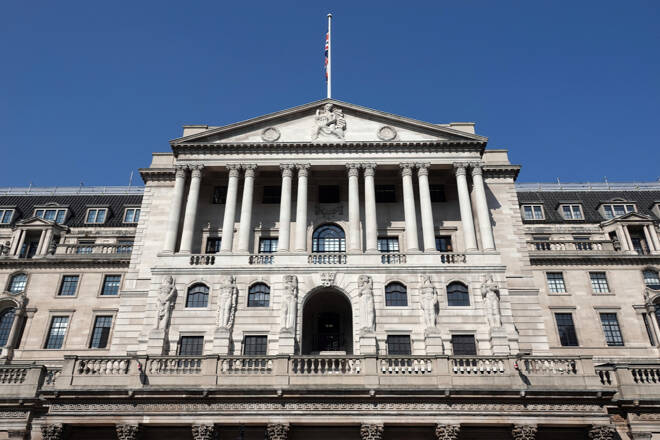Advertisement
Advertisement
BoE Governor Bailey Puts Pressure on the Pound and PM Truss
By:
UK Prime Minister Truss and the GBP/USD remain in the spotlight as the markets eye the Bank of England's next move and the path of the mini budget.
The GBP/USD saw no respite on Tuesday, falling by 0.82% to log a fifth consecutive daily loss. While steering clear of the late September all-time low of $1.03565, the UK government’s attempts to combat fuel prices and inflation continue creating market chaos.
Bank of England Interventions Fail to Restore Order
The Bank of England continues to intervene in the bond markets. This week, the Bank announced a widening to its gilt purchase operations by including index-linked gilts.
However, the Bank also announced that it would cease all gilt purchases on Friday, October 14.
Interventions may have supported a Pound recovery from sub-$1.04, but the Bank has yet to restore market confidence.
On Tuesday, Bank of England Governor Andrew Bailey attended the Institute of International Finance (IIF) Annual Membership Meeting in Washington. The BoE Governor took the opportunity to speak out to pension funds, reportedly saying,
“We have announced that we will be out by the end of this week. We think the rebalancing must be done.”
Bailey went on to say,
“And my message to the funds involved and all the firms involved in managing those funds: You’ve got three days left now. You’ve got to get this done.”
Ahead of the IIF event, the Pensions and Lifetime Savings Association (PLSA) reportedly called on the Bank of England to extend the operations until October 31 and possibly further.
According to reports, the PLSA said,
“A key concern of pension funds since the Bank of England’s intervention has been that the period of purchasing should not be ended too soon.”
The PLSA went on to say,
“Many feel it should be extended to the next fiscal event on 31 October and possibly beyond, or if purchasing is ended, that additional measures should be put in place to manage market volatility.”
The PLSA reportedly concluded,
“We continue to encourage all pension funds and service providers to use this period to take further steps to rebalance portfolios and ensure necessary measures are in place to protect their strategies in uncertain times.”
Markets React Adversely to Bailey’s Promise of an End to Gilt Purchases
The Pound was not the only victim of Bailey’s assurances that the Bank would cease gilt purchase operations on Friday.
On Tuesday, the FTSE 100 fell by 1.06%, with the NASDAQ 100 ending the session with a 1.10% loss.
From meetings in Washington, the IMF continued to voice criticism of the UK government’s policy measures.
Tobias Adrian, the IMF’s Financial Counsellor, reportedly said,
“A change in fiscal policy would change the trajectory of interest rates going forward. The change in fiscal policy changed the expectations of monetary policy and meant the Bank of England would have to raise interest rates that much more to bring inflation back to its mandated target.”
As the Bank of England prepares to take a step back from intervening, disorderly market conditions could force the Bank to take additional measures. However, the bigger question will be whether the UK Government will U-turn on the mini-budget.
While UK Chancellor Kwarteng faces a confidence test, UK Prime Minister Truss will also need to tread carefully. Failure to pass the finance bill could see Truss join a short list of PMs that didn’t make it past the first year. Political uncertainty would deliver another blow to the Pound.
About the Author
Bob Masonauthor
With over 28 years of experience in the financial industry, Bob has worked with various global rating agencies and multinational banks. Currently he is covering currencies, commodities, alternative asset classes and global equities, focusing mostly on European and Asian markets.
Advertisement
